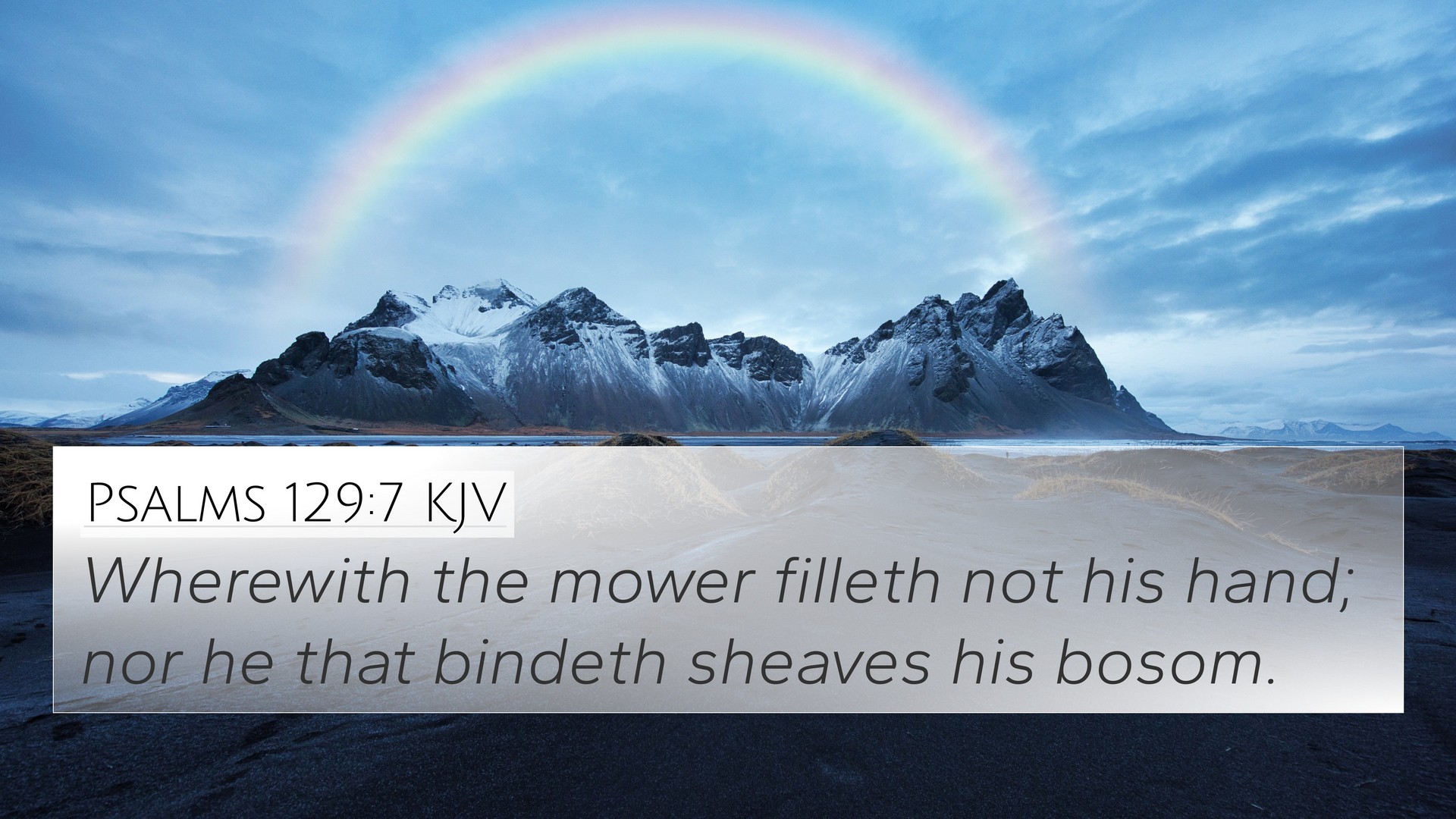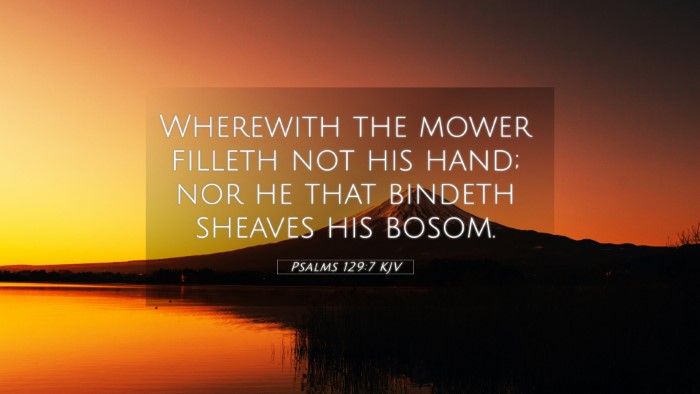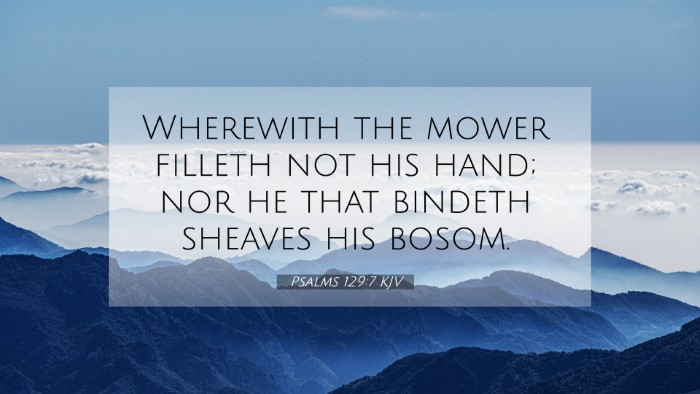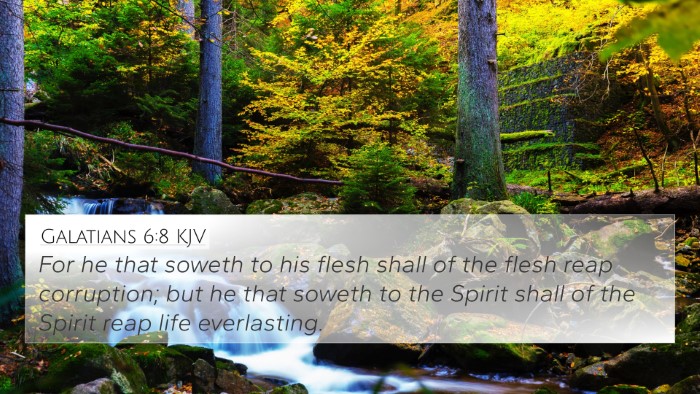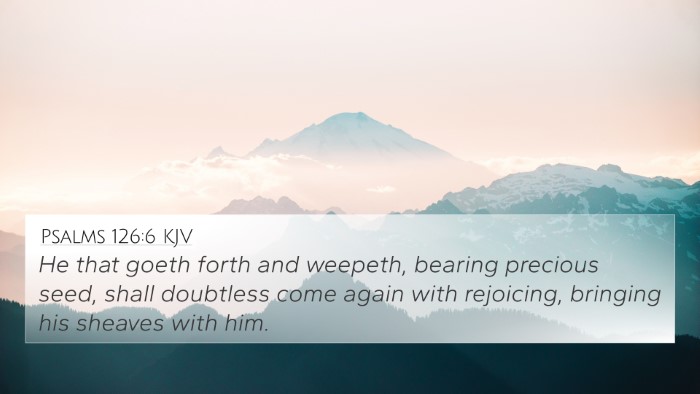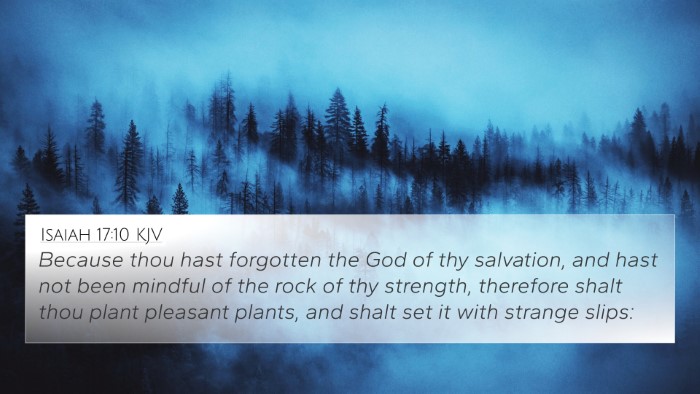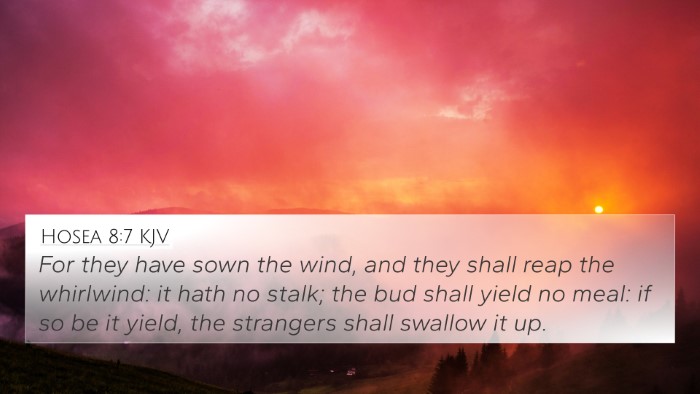Psalms 129:7 - Summary and Interpretation
Verse: Psalms 129:7 states, "Wherewith the mower filleth not his hand, nor he that bindeth sheaves his bosom."
Meaning of Psalms 129:7
This verse reflects a powerful metaphor about the futility of labor under oppression. The imagery of mowers and binders illustrates the harsh reality faced by the oppressed in Israel, where their hard work yields no success or reward due to oppression and hardship. It resonates with themes of injustice and the struggle of the faithful in times of trial.
Insights from Public Domain Commentaries
Matthew Henry's Commentary
Matthew Henry explains that Psalm 129 addresses the ongoing afflictions of Israel, emphasizing that despite their suffering, they will ultimately be vindicated. The imagery of the mowers and binders highlights that the laborers are left with empty hands, symbolizing the loss of hope and reward. This reflects God’s care for His people, as their plight is noted and will be rectified.
Albert Barnes' Notes
Barnes points out that this verse indicates a state of despair resulting from oppression. The reference to the mowers and binders suggests that those who oppress the Israelites will not benefit from their labor, implying that the oppressor will ultimately face consequences for their actions. It serves as a reminder that God sees the trials of His people and will act in time.
Adam Clarke's Commentary
Clarke highlights the agricultural metaphor as a reflection of the hardships of daily life for the oppressed. He draws attention to the fact that the efforts of the mowers and binders are rendered useless under the burden of their suffering. The verse stresses the importance of hope for deliverance and the eventual justice of God against those who cause misery.
Bible Cross-References
The following verses are interconnected with Psalms 129:7, providing deeper insights and thematic connections:
- Psalm 126:5-6 - "They that sow in tears shall reap in joy." (Illustrates the theme of suffering leading to future joy.)
- Isaiah 40:29 - "He giveth power to the faint; and to them that have no might he increaseth strength." (Reinforces God's support for the weary.)
- Jeremiah 31:16 - "For there is hope in thine end." (Hope amidst despair aligns with the themes in Psalms 129.)
- Romans 8:18 - "For I reckon that the sufferings of this present time are not worthy to be compared." (Suggests that present suffering has future glory.)
- Galatians 6:9 - "And let us not be weary in well doing: for in due season we shall reap, if we faint not." (Encouragement for perseverance through trials.)
- Matthew 5:10 - "Blessed are they which are persecuted for righteousness' sake." (Highlights the spiritual reward for enduring oppression.)
- Revelation 21:4 - "And God shall wipe away all tears from their eyes." (Promises ultimate consolation for those suffering.)
Thematic Connections
These cross-references reveal a rich tapestry of themes such as hope, perseverance, justice, and divine support throughout the Bible. The connections between these verses illustrate how the struggles depicted in Psalms 129 are echoed throughout the scripture, providing guidance and encouragement to the faithful.
Tools for Bible Cross-Referencing
For further study on linking Bible scriptures and understanding thematic Bible verse connections, consider utilizing:
- Bible Concordance: A comprehensive tool to find specific verses and their connections.
- Bible Cross-Reference Guide: Helpful for identifying related scriptures.
- Cross-Reference Bible Study: Techniques to engage deeply with themes across the Bible.
- Bible Reference Resources: A variety of tools available for exploring inter-Biblical dialogue.
Conclusion
Psalms 129:7 serves as a powerful reminder of the trials faced by those who are oppressed, yet it also encourages hope and the certainty of divine intervention. Through understanding its meaning and exploring its connections via cross-references, one can gain deeper insights into God’s justice and grace. This verse, like many others, invites readers to reflect on the nature of suffering, the hope for redemption, and the profound interconnectedness found in the scripture.
